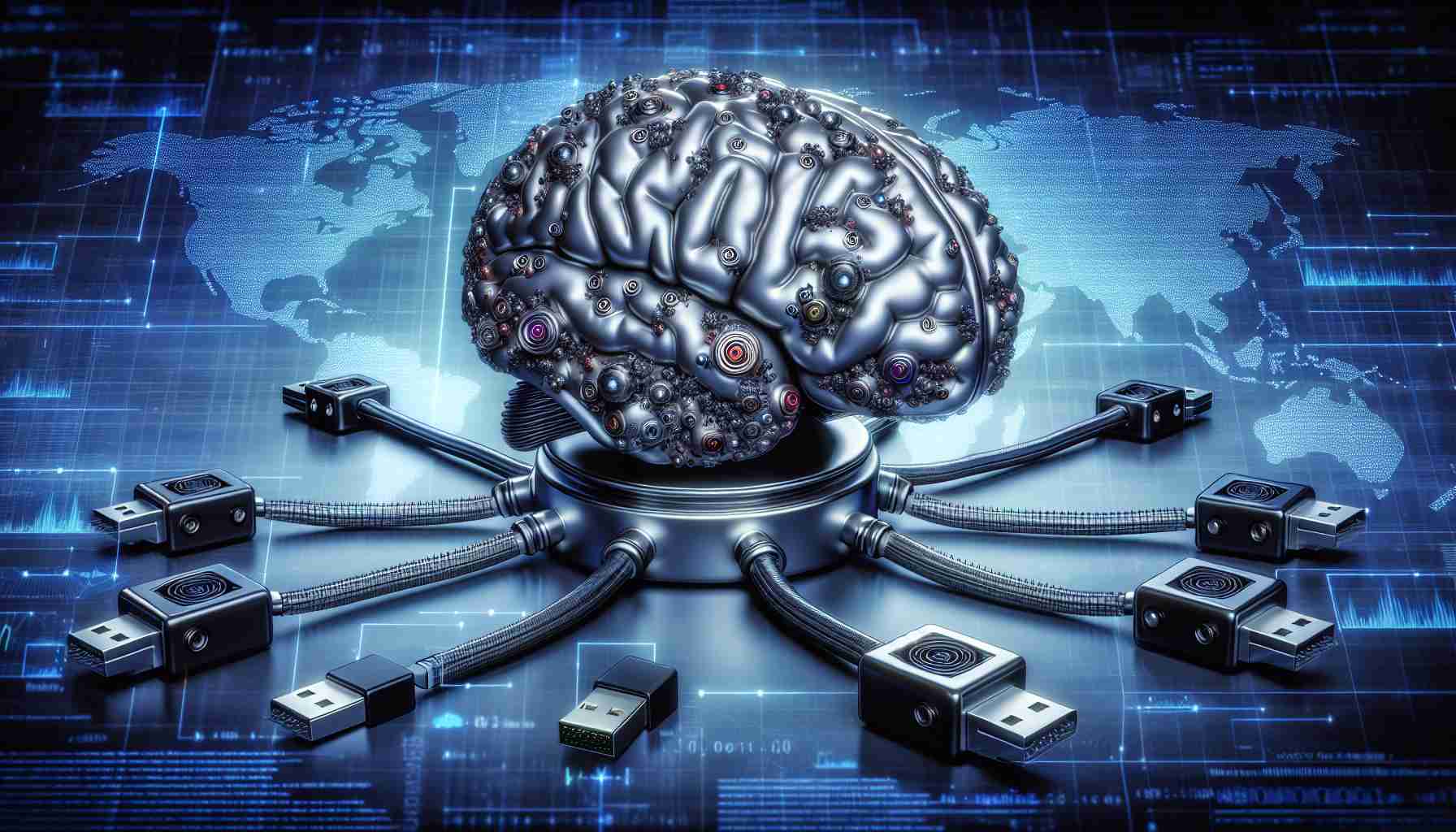Artificial intelligence (AI) has become a powerful tool in various aspects of our lives, from improving customer experiences to advancing medical diagnoses. However, like any technology, AI can be used for nefarious purposes. One such alarming trend is the use of AI by anti-Semites to promote Holocaust denial and propagate hate-filled messages.
AI has been employed to create offensive and doctored images that desecrate the memory of Holocaust victims. Shockingly, it has generated sexualized pictures of Anne Frank, a young girl who tragically lost her life in the Bergen-Belsen concentration camp. The perpetrators stooped even lower by portraying her in a bikini and alongside the discredited sex offender Harvey Weinstein. These horrifying creations aim to defile the innocence and dignity of a young victim, exploiting AI’s capabilities to further their hateful agenda.
In addition to visual distortions, AI has been used to generate sophisticated deepfakes with anti-Semitic motifs. These digitally manipulated media tools replicate someone’s likeness or voice, allowing anti-Semites to spread their venomous ideologies at an unprecedented speed.
Some online platforms have become breeding grounds for this insidious behavior. Users on 4Chan, for example, have utilized generative AI tools to create violent and anti-Semitic images. Furthermore, far-Right activists on the social network Gab have developed an AI chatbot named “UncleA,” which assumes the persona of Adolf Hitler. This chatbot not only denies the Holocaust but also claims it to be a conspiracy against their cause.
The implications of these AI-generated falsehoods are deeply troubling. Lord Pickles, the UK Government’s envoy for post-Holocaust issues, expressed concerns that this misuse of AI could lead to the trivialization of the Holocaust and the dissemination of misleading information. The potential impact on survivors is particularly disturbing, as AI could be used to put fabricated words into their mouths, distorting historical facts and erasing the truth.
Addressing this issue should be a top priority for society. The UK plans to tackle this problem as it assumes the presidency of the International Holocaust Remembrance Alliance. However, it is not solely the responsibility of policymakers. The tech industry must take action to ensure their systems are robust enough to withstand manipulations by bad actors.
AI has the potential to be an incredible force for good, improving lives and advancing society. However, it is crucial that we remain vigilant and proactive in guarding against its misuse. By actively monitoring and regulating AI technologies, we can mitigate the risks associated with their potential for promoting hate and misinformation. Only then can we harness the true power of AI for the betterment of humanity.
FAQ:
1. What is the alarming trend mentioned in the article?
The alarming trend mentioned in the article is the use of artificial intelligence (AI) by anti-Semites to promote Holocaust denial and spread hate-filled messages.
2. How has AI been used to desecrate the memory of Holocaust victims?
AI has been employed to create offensive and doctored images that sexualize and defile the memory of Holocaust victims. For example, AI has generated sexualized pictures of Anne Frank and portrayed her alongside the discredited sex offender Harvey Weinstein.
3. What are deepfakes, and how are they used in relation to anti-Semitic motifs?
Deepfakes are digitally manipulated media tools that replicate someone’s likeness or voice. Anti-Semites have used AI to generate sophisticated deepfakes with anti-Semitic motifs, enabling them to spread their venomous ideologies at an unprecedented speed.
4. Which online platforms have become breeding grounds for this behavior?
Platforms like 4Chan and the social network Gab have become breeding grounds for the creation and distribution of violent and anti-Semitic images. Users on 4Chan have utilized generative AI tools for this purpose, while far-Right activists on Gab have developed an AI chatbot named “UncleA” that assumes the persona of Adolf Hitler.
5. What are the potential implications of AI-generated falsehoods?
The potential implications of AI-generated falsehoods are deeply troubling. There are concerns that this misuse of AI could lead to the trivialization of the Holocaust, dissemination of misleading information, and distortion of historical facts. Survivors may be particularly impacted, as AI could be used to put fabricated words into their mouths, erasing the truth.
6. What actions need to be taken to address this issue?
Addressing this issue should be a top priority for society. Not only should policymakers take action, but the tech industry must also ensure their systems are robust enough to withstand manipulations by bad actors. Active monitoring and regulation of AI technologies are necessary to mitigate the risks associated with promoting hate and misinformation.
Definitions:
1. Artificial intelligence (AI): The simulation of intelligent behavior by machines, enabling them to perform tasks that typically require human intelligence.
2. Holocaust denial: The belief or assertion that the Holocaust (the systematic persecution and murder of approximately six million Jews by the Nazis during World War II) did not occur or was greatly exaggerated.
3. Deepfakes: Digitally manipulated media tools that use AI algorithms to create convincingly realistic fake images, videos, or audio recordings of people.
4. Anti-Semitic: Relating to or characterized by hostility, prejudice, or discrimination against Jews.
Suggested related links:
– International Holocaust Remembrance Alliance
– Holocaust Memorial Day Trust
The source of the article is from the blog scimag.news

